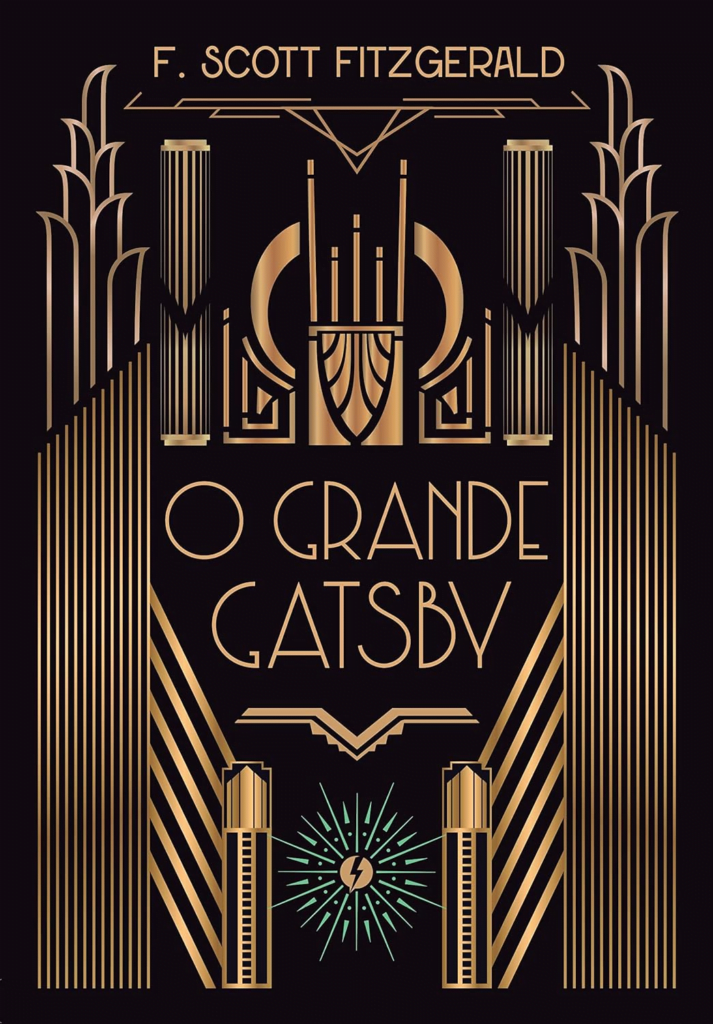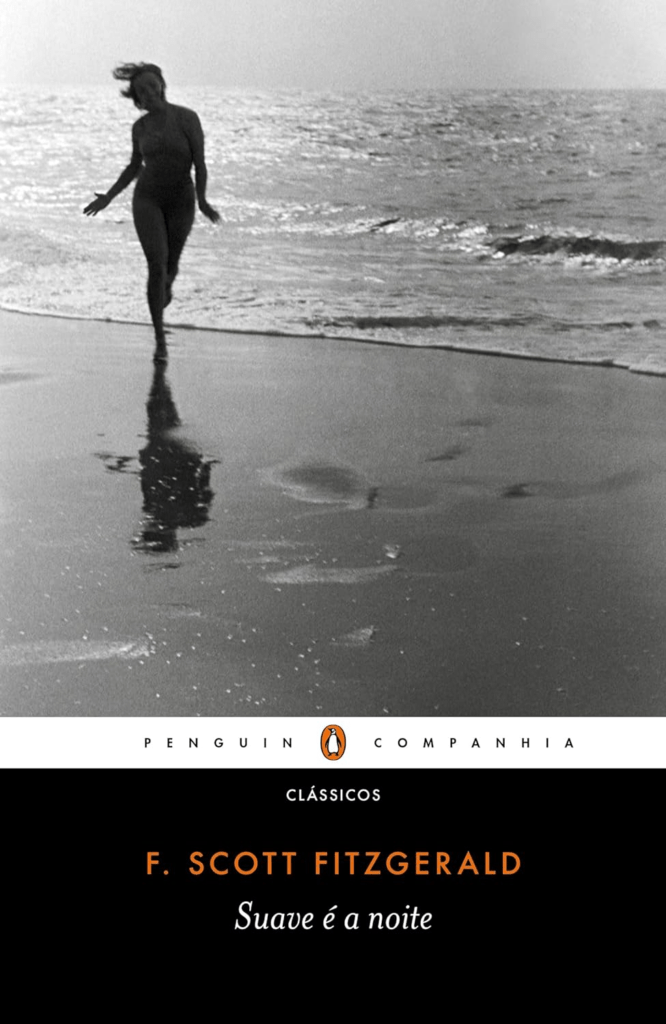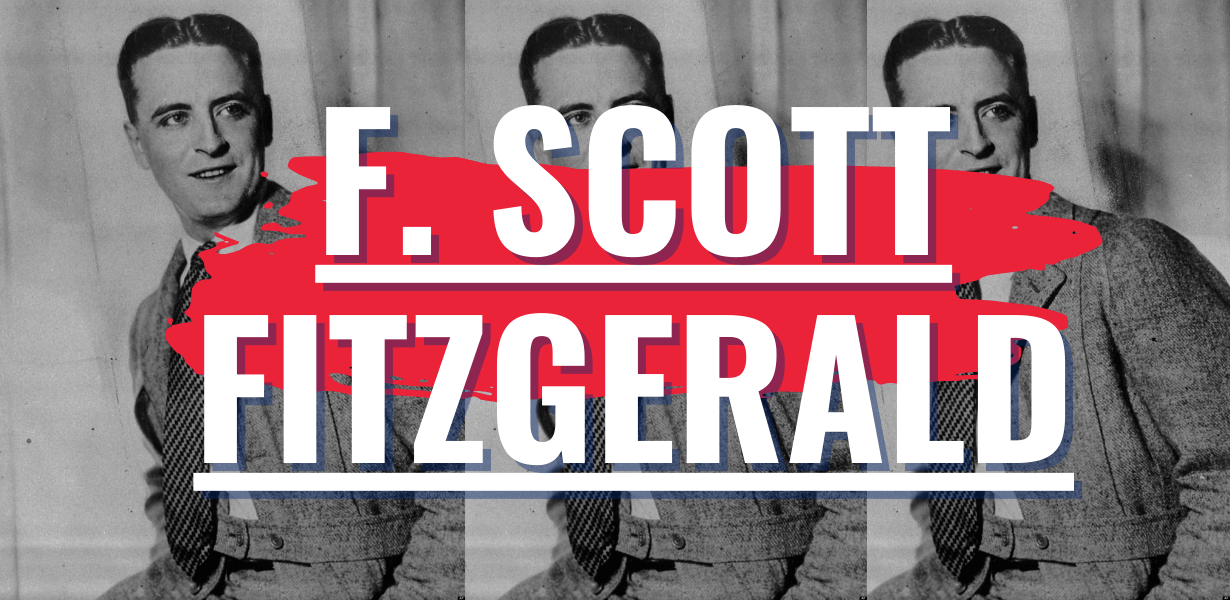Hello there! Hoje lemos (em inglês e português) a biografia do escritor americano F. Scott Fitzgerald. Boa leitura!
BIOGRAFIA
F. Scott Fitzgerald was one of the most influential American writers of the 20th century. He is best known for his novels and short stories that depict the glamour and decadence of the Jazz Age, as well as the disillusionment and moral decay of the American dream.
F. Scott Fitzgerald foi um dos escritores americanos mais influentes do século XX. Ele é mais conhecido por seus romances e contos que retratam o glamour e a decadência da Era do Jazz, bem como a desilusão e a decadência moral do sonho americano.
Fitzgerald was born on September 24, 1896, in St. Paul, Minnesota, to an upper-middle-class family. His father, Edward, was a furniture salesman who had failed in his own business ventures, while his mother, Mollie, was a socialite who inherited a fortune from her father. Fitzgerald was named after his distant cousin, Francis Scott Key, the author of the national anthem.
Fitzgerald nasceu em 24 de setembro de 1896, em St. Paul, Minnesota, em uma família de classe média alta. Seu pai, Edward, era um vendedor de móveis que fracassou em seus próprios empreendimentos comerciais, enquanto sua mãe, Mollie, era uma socialite que herdou uma fortuna de seu pai. Fitzgerald recebeu o nome de seu primo distante, Francis Scott Key, autor do hino nacional.
Fitzgerald showed an early talent for writing and published his first story in his school newspaper when he was 13. He attended Princeton University, where he wrote for various literary magazines and became friends with future critics and writers such as Edmund Wilson and John Peale Bishop. However, he neglected his studies and was placed on academic probation. He dropped out of Princeton in 1917 and joined the army, hoping to see action in World War I. He was stationed at Camp Sheridan, Alabama, where he met and fell in love with Zelda Sayre, the daughter of a prominent judge and a belle of the local society.
Fitzgerald mostrou desde cedo um talento para escrever e publicou sua primeira história no jornal da escola quando tinha 13 anos. Frequentou a Universidade de Princeton, onde escreveu para várias revistas literárias e tornou-se amigo de futuros críticos e escritores como Edmund Wilson e John Peale Bishop. No entanto, ele negligenciou seus estudos e foi colocado em liberdade condicional acadêmica. Ele abandonou Princeton em 1917 e se alistou no exército, na esperança de ver ação na Primeira Guerra Mundial. Ele estava estacionado em Camp Sheridan, Alabama, onde conheceu e se apaixonou por Zelda Sayre, filha de um juiz proeminente e uma bela da sociedade local.
COMPRE COM DESCONTO NA AMAZON!

Fitzgerald was discharged from the army in 1919 and moved to New York City, where he worked as an advertising copywriter and wrote short stories for magazines. He proposed to Zelda, but she rejected him, saying that he was too poor to marry her. Determined to win her back, he revised his novel The Romantic Egotist, which he had started at Princeton, and sold it to Scribner’s under the title This Side of Paradise. The novel, which was based on his own experiences and aspirations, was published in 1920 and became an instant success, making him a celebrity and a spokesman for the “lost generation” of young people disillusioned by the war. He married Zelda a week after the publication and they became the epitome of the Jazz Age, living a lavish and extravagant lifestyle, traveling to Europe, and mingling with the artistic and literary elite.
Fitzgerald foi dispensado do exército em 1919 e mudou-se para a cidade de Nova York, onde trabalhou como redator publicitário e escreveu contos para revistas. Ele pediu Zelda em casamento, mas ela o rejeitou, dizendo que ele era pobre demais para se casar com ela. Determinado a reconquistá-la, ele revisou seu romance The Romantic Egotist, que havia começado em Princeton, e o vendeu para a Scribner’s sob o título This Side of Paradise. O romance, baseado nas suas próprias experiências e aspirações, foi publicado em 1920 e tornou-se um sucesso instantâneo, tornando-o uma celebridade e porta-voz da “geração perdida” de jovens desiludidos com a guerra. Ele se casou com Zelda uma semana após a publicação e eles se tornaram o epítome da Era do Jazz, vivendo um estilo de vida luxuoso e extravagante, viajando para a Europa e misturando-se com a elite artística e literária.
Fitzgerald wrote his second novel, The Beautiful and Damned, in 1922, which was a darker and more cynical portrayal of the hedonism and corruption of the high society. He also began writing short stories for The Saturday Evening Post, which paid him well but also compromised his artistic integrity. He felt that he was selling his talent for money and fame, and that he was wasting his potential. He also struggled with alcoholism, which affected his health and his relationship with Zelda, who suffered from mental breakdowns and was diagnosed with schizophrenia. Their only child, Frances Scott “Scottie” Fitzgerald, was born in 1921.
Fitzgerald escreveu seu segundo romance, The Beautiful and Damned, em 1922, que era um retrato mais sombrio e cínico do hedonismo e da corrupção da alta sociedade. Ele também começou a escrever contos para o The Saturday Evening Post, o que lhe pagou bem, mas também comprometeu sua integridade artística. Ele sentiu que estava vendendo seu talento por dinheiro e fama, e que estava desperdiçando seu potencial. Ele também lutou contra o alcoolismo, o que afetou sua saúde e seu relacionamento com Zelda, que sofria de colapsos mentais e foi diagnosticada com esquizofrenia. Sua única filha, Frances Scott “Scottie” Fitzgerald, nasceu em 1921.
In 1924, Fitzgerald and Zelda moved to France, where they became part of the expatriate community of writers and artists known as the “Lost Generation”. There, he befriended Ernest Hemingway, who admired his work but also criticized his lifestyle and his dependence on Zelda. Fitzgerald wrote his masterpiece, The Great Gatsby, in 1925, which was a tragic and lyrical novel about the rise and fall of Jay Gatsby, a mysterious and wealthy bootlegger who pursues his lost love, Daisy Buchanan, across the social divide of the 1920s America. The novel was praised by critics but sold poorly, and Fitzgerald was disappointed by its lack of popularity.
Em 1924, Fitzgerald e Zelda mudaram-se para França, onde se tornaram parte da comunidade expatriada de escritores e artistas conhecida como a “Geração Perdida”. Lá, ele fez amizade com Ernest Hemingway, que admirava seu trabalho, mas também criticava seu estilo de vida e sua dependência de Zelda. Fitzgerald escreveu sua obra-prima, O Grande Gatsby, em 1925, que era um romance trágico e lírico sobre a ascensão e queda de Jay Gatsby, um contrabandista misterioso e rico que persegue seu amor perdido, Daisy Buchanan, através da divisão social da América dos anos 1920. . O romance foi elogiado pela crítica, mas vendeu mal, e Fitzgerald ficou desapontado com sua falta de popularidade.
COMPRE COM DESCONTO NA AMAZON!

Fitzgerald and Zelda returned to America in 1927 and settled in Hollywood, where he worked as a screenwriter for MGM and other studios. He also wrote his fourth novel, Tender Is the Night, in 1934, which was a complex and autobiographical novel about the deterioration of a marriage between a psychiatrist and his unstable wife, based on his own relationship with Zelda. The novel was also a critical and commercial failure, and Fitzgerald felt that he had lost his touch and his audience.
Fitzgerald e Zelda retornaram à América em 1927 e se estabeleceram em Hollywood, onde trabalharam como roteirista para a MGM e outros estúdios. Ele também escreveu seu quarto romance, Tender Is the Night, em 1934, que era um romance complexo e autobiográfico sobre a deterioração de um casamento entre um psiquiatra e sua esposa instável, baseado em seu próprio relacionamento com Zelda. O romance também foi um fracasso comercial e de crítica, e Fitzgerald sentiu que havia perdido o toque e o público.
Fitzgerald spent the last years of his life in financial and emotional distress, as he tried to pay for Zelda’s treatment in a mental hospital and support his daughter. He also had a turbulent affair with Sheilah Graham, a gossip columnist and his companion until his death. He continued to write short stories and essays, and started working on his fifth and unfinished novel, The Last Tycoon, which was a realistic and mature depiction of the Hollywood industry and its corruption. He died of a heart attack on December 21, 1940, at the age of 44, in Graham’s apartment. He was buried in Rockville, Maryland, with the epitaph “So we beat on, boats against the current, borne back ceaselessly into the past”, the last line of The Great Gatsby.
Fitzgerald passou os últimos anos de sua vida em dificuldades financeiras e emocionais, enquanto tentava pagar o tratamento de Zelda em um hospital psiquiátrico e sustentar sua filha. Ele também teve um caso turbulento com Sheilah Graham, colunista de fofocas e sua companheira até sua morte. Ele continuou a escrever contos e ensaios e começou a trabalhar em seu quinto e inacabado romance, The Last Tycoon, que era uma representação realista e madura da indústria de Hollywood e sua corrupção. Ele morreu de ataque cardíaco em 21 de dezembro de 1940, aos 44 anos, no apartamento de Graham. Ele foi enterrado em Rockville, Maryland, com o epitáfio “Então continuamos, barcos contra a corrente, levados incessantemente ao passado”, último verso de O Grande Gatsby.
Fitzgerald’s reputation as one of the greatest American writers was revived in the 1950s, when his novels and stories were reprinted and rediscovered by a new generation of readers and critics. He is widely regarded as the master of the modern novel and the chronicler of the Jazz Age, and his works have influenced many writers and artists, as well as inspired numerous adaptations in film, television, and theater.
A reputação de Fitzgerald como um dos maiores escritores americanos foi revivida na década de 1950, quando seus romances e contos foram reimpressos e redescobertos por uma nova geração de leitores e críticos. Ele é amplamente considerado o mestre do romance moderno e o cronista da Era do Jazz, e suas obras influenciaram muitos escritores e artistas, além de inspirar inúmeras adaptações para o cinema, a televisão e o teatro.
Veja também:
⇒ BUMP INTO | O que significa este phrasal verb
⇒ GET OUT OF HAND | O que significa esta expressão
⇒ INFINITIVO (TO) x GERÚNDO (-ING) | Significados Diferentes







